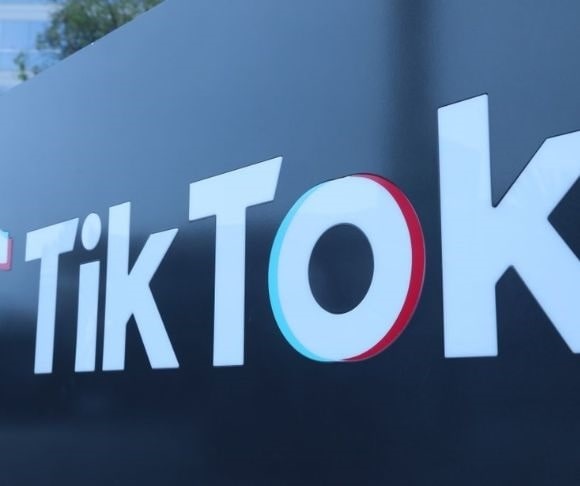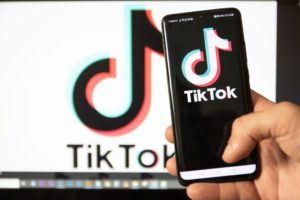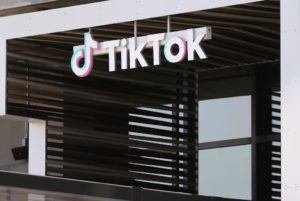
(Xinhua via Getty) (Xinhua/Xinhua via Getty Images)
Will the US government clamp down on the Chinese-owned TikTok? A Republican member of the Federal Communications Commission (FCC) has requested Apple and Google remove the social media outlets from their mobile app stores, citing growing data and privacy concerns. But now that the video-sharing app has become one of the largest social networks in the world, it might be a challenge for Big Tech to acquiesce to one regulator’s request.
‘Sheep’s Clothing’
 Brendan Carr, a commissioner on the FCC, shared a letter he penned to Alphabet CEO Sundar Pichai and Apple CEO Tim Cook on Twitter. The June 24 communication alluded to reports that showed the app was not compliant with two of the companies’ app store policies.
Brendan Carr, a commissioner on the FCC, shared a letter he penned to Alphabet CEO Sundar Pichai and Apple CEO Tim Cook on Twitter. The June 24 communication alluded to reports that showed the app was not compliant with two of the companies’ app store policies.
Carr, who was nominated by former President Donald Trump in 2018 for a five-year term, identified various examples of the ByteDance-owned app violating multiple privacy and data security laws at home and abroad. He also listed a broad array of US businesses and branches of the federal government that have prohibited TikTok, including the Department of Homeland Security, Wells Fargo, and the military.
According to the letter, Carr contends that TikTok collects:
- Search and browsing histories.
- Biometric identifiers.
- Keystroke patterns.
- Draft messages.
- Content that is stored on a device’s clipboard.
This comes after it was reported that recordings of TikTok employees suggested engineers in China possessed access to US data between September 2021 and January 2022. Following the revelation, the company confirmed that it was directing all US user traffic to Oracle Cloud Infrastructure and shifting American users’ private data to Oracle servers in the US.

(Photo by Nicolas Economou/NurPhoto via Getty Images)
“TikTok is not what it appears to be on the surface. It is not just an app for sharing funny videos or meme. That’s the sheep’s clothing. At its core, TikTok functions as a sophisticated surveillance tool that harvests extensive amounts of personal and sensitive data,” he said. “It is clear that TikTok poses an unacceptable national security risk due to its extensive data harvesting being combined with Beijing’s apparently unchecked access to that sensitive data.”
If the app is not removed, he asked the executives to offer statements by July 8 that explain “the basis for your company’s conclusion that the surreptitious access of private and sensitive U.S. user data by persons located in Beijing, coupled with TikTok’s pattern of misleading representations and conduct, does not run afoul of any of your app store policies.”
In recent years, TikTok has faced notable regulatory scrutiny from US officials regarding user data.
In 2020, the Committee on Foreign Investment in the United States (CFIUS) ordered ByteDance to divest TikTok over concerns about sharing American user data with the Chinese Communist Party. Trump had gone as far as trying to ban the app through an executive order, which led to broader discussions involving Microsoft and Walmart buying the company. President Joe Biden and his administration recently launched a national security review of TikTok – six Republican senators requested an update from the Treasury Department on how the assessment is proceeding.
How Big Is TikTok?

(Photo by Mario Tama/Getty Images)
If outsiders were to scroll through Twitter and come across Libs of TikTok or TikTok Investors accounts, it would be easy to think that the app is filled with mentally ill individuals or get-rich-quick schemers. However, the TikTok ecosystem has become incredibly diverse, with many celebrities, brands, and politicians partaking in the website. Considering its size, it is not entirely surprising.
Nearly six years after its launch, TikTok has become the world’s sixth-largest app as it enjoys one billion monthly active users (MAUs). With availability in more than 150 countries, the app has been downloaded 2.6 billion times, and the average number of minutes users spend a day is 52. More than two-thirds of its audience is between ten and 39, although the number of participants over 40 is growing. Suffice it to say, it is quickly rivaling Facebook, Instagram, Twitter, and many other apps.
TikTok is free popcorn entertainment, although consumers might lose a few brain cells watching unhinged folks ranting. But considering escalating privacy, data, and even national security concerns, the world may be paying a cost. Instead of handing over their information to Meta CEO Mark Zuckerberg, millions of people are giving their data to President Xi Jinping and the Chinese communists.
Remember to check out the web’s best conservative news aggregator
Whatfinger.com — the #1 Alternative to the Drudge


